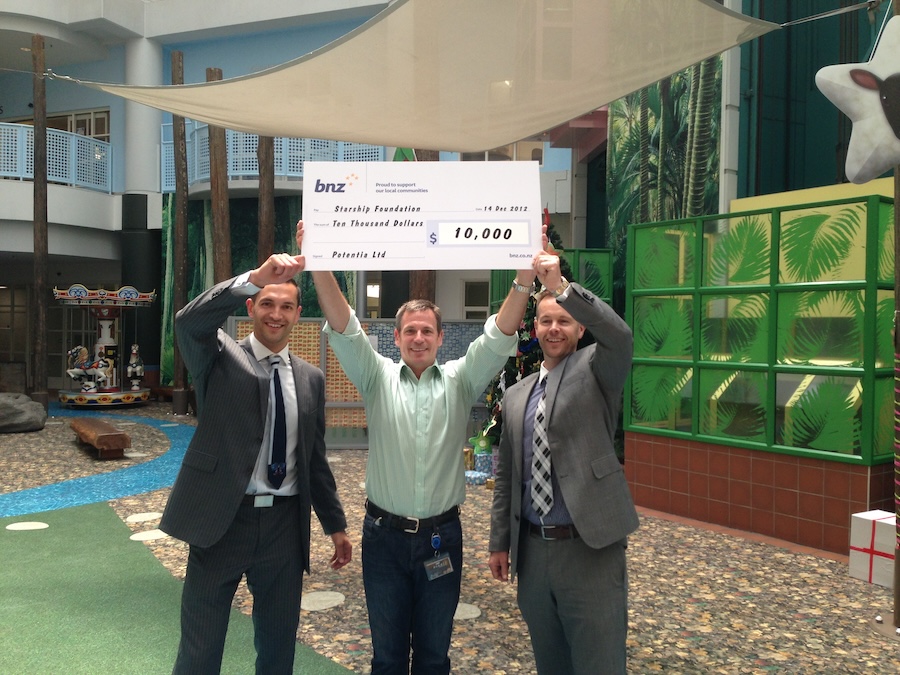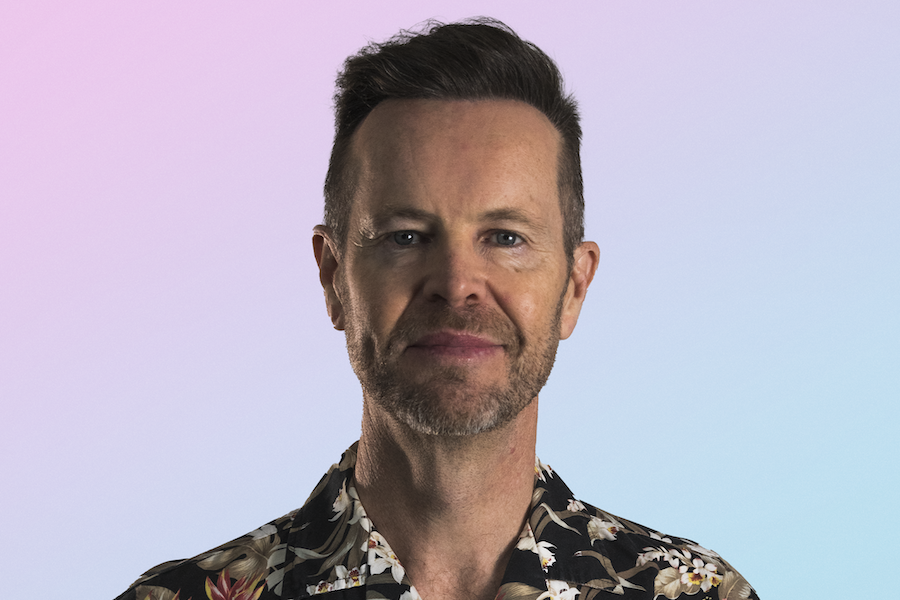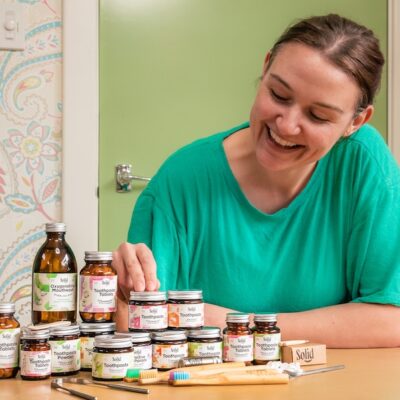Confessions of a serial investor
Step inside the world of Josh Comrie – a Kiwi businessman consistently and successfully backing big dreams.
When it comes to putting runs on the board for New Zealand’s fledgling businesses, there is nobody more committed than Josh Comrie.
The man who personally founded New Zealand’s leading tech recruiter Potentia and, together with Gareth Cronin and Tim Warren, co-founded Ambit, the platform that automates customer service at scale, has now backed no less than 49 start-up companies.
He eats, sleeps and breathes new business challenges and has many investment lessons to share.
You may wonder if Josh has any favourites among all those 49 start-ups. His answer is “no”.
“Every single one has been special,” he says.
Of course, he’s understandably proud of both Potentia and Ambit – one of which is now approaching a nine-figure revenue figure; the other, a solid seven figures.
Looking back over the past few years it’s impossible to ignore the devastation inflicted on New Zealand’s small and medium businesses by Covid-19, with many tourism and hospitality businesses totally blind-sided by the pandemic’s impact. But Josh is quick to remind us that from those dark times came countless inspiring stories of businesses having to totally reinvent themselves – stories that we can all continue to learn from.
Lessons on people and business
As for all those businesses Josh has been involved with, he’s happy to share five key common teachings they’ve delivered.
“Perhaps the most important lesson is that your team always trumps the [business] idea,” he says. “The quality of the team is much more important than the quality of the idea.”
He goes on to explain that if the original business idea isn’t great, but there’s an effective mechanism for challenging dialogue, then a good team should be able to step back and come up with something better.
The second lesson is “timing trumps everything”.
Josh uses the example of the microwave oven. Its technology was ready to be released to the worldwide market in the late 1950s, but ongoing global events such as the Cold War delayed its introduction until 1979, when a younger generation was much more open to it.
It’s true that the full potential of cloud computing couldn’t have been realised either without the widespread rollout of broadband technology. It is all about timing.
The third lesson involves your team.
“They need to establish, and then continue to discuss, your business’s critical success factors,” explains Josh. “They also need to have ongoing alignment on a regular basis, otherwise you end up with misalignment and that just creates conflict.”
A fourth lesson is to understand the need to ensure there’s a strong, regular and productive dialogue that keeps everyone in a place of productive tension, he adds.
“Imagine a relationship continuum of harmony in your left hand and conflict in your right hand – neither of those is productive to a relationship.
“In the middle is tension, and that’s where the friction happens. Ideas are rubbing up against each other, and so are people, but from all that comes super productive dialogue,” continues Josh.
“In New Zealand we’re not very skilled at productive tension. We jump straight from harmony to conflict, and then the relationship needs repairing. So off we go to lick our wounds.
“I say to any business co-founders that your two most important relationships are your life partnership at home, and the relationship you have in your office. If one of those is not going well then life won’t be good. If both aren’t going well, then life will be absolutely terrible!”
The fifth key lesson for business start-ups relates to the realisation that you’re always raising money, he says; always having conversations with potential investors and potential customers; and always looking to secure the future.
All about timing
Nowadays Josh and the other Ambit founders are no longer associated with the business. But looking back, and with the recent full-scale development of the AI landscape, Josh wonders if Ambit’s timing had been a little too soon. The business successfully developed and marketed a turnkey AI chatbot platform for businesses and gained some impressive corporate and retail clients. It could have been in a position to harness ChatGPT – however, eight years ago processors simply weren’t powerful enough to take advantage of the technology.

Despite that, Josh says one of the key lessons from that whole experience was acknowledging the importance of knowing exactly what stage new customers are at in the technology adoption lifecycle.
“Are they an innovator? An early adopter? Early majority or late majority? A laggard perhaps?
“Innovators are the first two or three percent of the market and have very different drivers to the early majority stage,” Josh explains. “There can be a short or long chasm between each stage and this impacts on the way you approach those customers.”
Challenging times
It’s no secret that the business environment in New Zealand has been incredibly challenging for both startups and incumbents – and particularly difficult for winning and growing customers.
But it’s important to remember that even during times of economic turmoil companies are still born and businesses still grow. Josh admits that 2024 has offered up one of the most difficult fundraising environments he’s seen in the 20-plus years he’s been investing in start-ups. In the past he has provided both pre-seed and seed money for start-ups and divided his investments at a ratio of 80 percent for new enterprises, 20 percent for existing ones. But in 2024 that ratio’s been flipped with many more existing businesses receiving follow-on funding.
He attributes this not just to the current business environment, but also to the unsustainably high business valuations of the post-Covid era.
Advice for new start-ups
If you’re a newly minted business founder seeking funding from investors, be aware that the playing field is very different in 2024.
“Firstly, as investors, we’re no longer interested in a ‘grow-at-all-costs-andcontinue-to-make-a-loss’ business model,” says Josh. “I want to see a business model that will be self-supporting and self-sustaining at some stage. It could be in two years’ time, or it could be in five years’ time.
“Today we’re almost back to that place where business fundamentals are really, really important,” he explains, adding that every business he’s currently involved with has an investor acting as the chairperson, an advisor, or is simply in touch with the owner on a regular basis.
“Those companies have gone through an evolution over the past two to three years. They understand they must move away from appearing to be reliant on venture funding for the foreseeable future.
“In other words, develop a sustainable business model.”
Josh’s second piece of advice for fresh-faced founders is to be aware of the untapped gold within peoples’ personal networks and their incumbent customer base.
“Do the absolute best that you can, especially by, and for, the customers you currently serve. They’re so important to your success.”
Double down on your cashflow management, he adds. “Remember the adage: revenue is for vanity, profit for sanity and cashflow is reality. Never has that been more applicable than now.”
Another valuable reminder is to have a ‘hawk-like’ awareness of what your creditors and debtors are doing, he says. “Has there been any variations? Have that regular talk.”
Be laser-focused on payment timeframes too – particularly if you’re entering a new industry sector. Be aware of what the behaviours are like in that space.
“Not just the payments either, but also from an integrity and upfront honesty perspective. You’ll be dealing with these companies for a considerable period,” explains Josh.
One final piece of advice for new start-ups is to be crystal-clear on what you’re doing. “Remember the adage ‘the most important thing is to make the most important thing the most important thing’.
“Understand what the critical metrics are in your business, and then focus feverishly on those,” says Josh.
“One year it might be topline revenue growth, the next year it might be gross margin, and the year after that it might be profit.
“You can move that focus from one year to the next, but you can’t move it from one month to the next.”

Looking ahead
Looking into the future, there’re no signs that things will be slowing down for Josh, and start-ups will continue to take up much of his time.
Recently he teamed up with Gareth Cronin and Phil Cockrell to launch Payve – a platform designed to make it easier for everyday people to give to causes they align with, it allows employers to match donations, and means a broader range of charities will receive consistent and increasing funding.
Josh loves the energy and positivity that surrounds the entrepreneurial space.
Having been CEO of his own ventures for 20 years, he now focuses his energy to assist founders to grow better businesses. “Ultimately, I work with founders to help them understand where the value levers are in their business. The idea is to enable them to achieve freedom, perhaps through a business exit or simply free themselves from the day-to-day operations,” he says.
“I’ve built my own IP to help teams create better systems, win better customers and build great teams, while constructing their own IP.
EO: Leading by learning
Josh Comrie’s association with New Zealand’s Entrepreneurs’ Organisation spans 13 years. He has held various senior roles with the organisation and he’s grateful for the connections and the learning that comes with membership.
Josh spent a year in Australia during which he took a break from the organisation but was quick to sign up again upon his return.
“I missed the people, the learning events, and I missed the opportunity to rub shoulders with people who, like me, are positive and smart, have big dreams and tonnes of enthusiasm. “We just love helping each other out.”
Josh says EO has been a big part of his life, and his success. “I’ve observed EO’s evolution in New Zealand. In the early days, around 2010/2011 it was a case of too much party, not enough learning. However, today that balance has been addressed. It’s now mostly about learning, and only just a little bit of partying.
“We lead by learning, and there’s the one big party at the end of the year.”
The 360° Entrepreneur is proudly brought to you by EO New Zealand. The series will follow Kiwi entrepreneurs and how they are overcoming challenges both professional and personal to grow and scale their businesses.

For more information about EO membership, reach out to [email protected].







